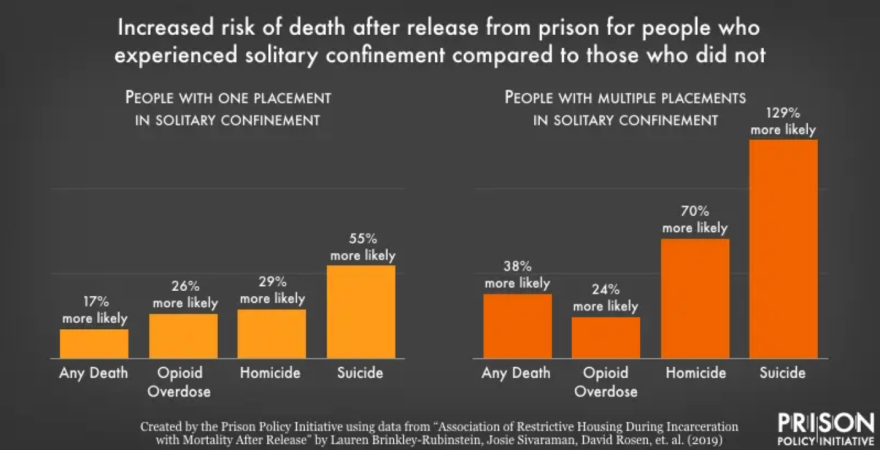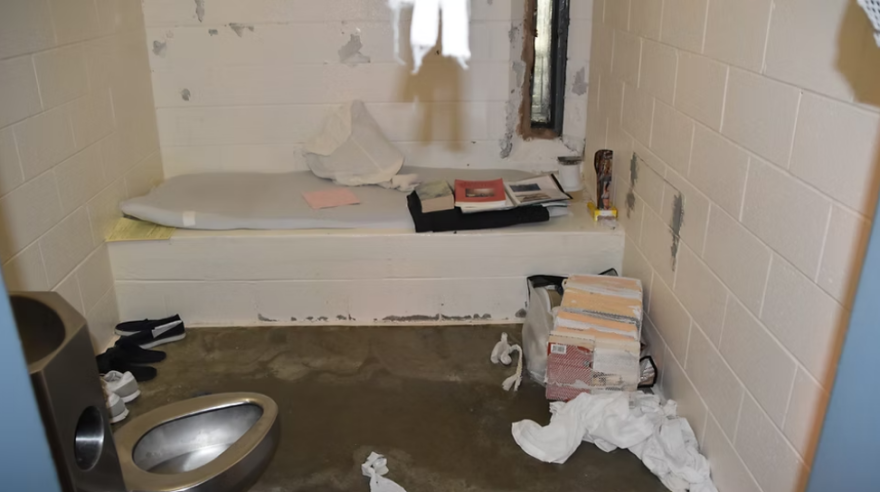A new report is examining the first person experience inside the Arkansas prison system – as prisoners deal with mental health challenges in solitary confinement. As Nathan Treece with Little Rock Public Radio reports, the new study, known as "Failure to Obey: Solitary Confinement in Arkansas Prisons,” was conducted by DecARcerate. It is a nonprofit agency based in Little Rock, Arkansas that's focused on prisons and justice. The heart of their analysis features testimony from incarcerated writer and activist Demarco Raynor.
Decarcerate Director Zachary Crow says inmates’ risk of suicide is more than 400 times greater when in solitary confinement. “Lots of times people with serious mental illness are, you know, punished for that by being placed in solitary confinement which can exacerbate those mental health conditions, but can, has also been shown to cause and create serious mental illness. It’s no wonder that because of that fact we see such high rates of suicide inside solitary confinement.”

Crow says the majority of people in solitary confinement in Arkansas are there for non-violent disciplinary offenses. He says while there are limits to the amount of time inmates can be subjected to solitary confinement, prison officials have ways of getting around them. “There are limits to the amount of time. However, what we see often is that people are transferred out of solitary and then transferred immediately back into solitary. And the impact of that is often that people are locked down in solitary confinement for years and years and years.”
According to a May 2023 report “Calculating Torture,” conducted by the national nonprofit watchdog agency Solitary Watch, examined the percentage of people in U.S. prisons and jails, including federal, state and local jurisdictions, for every state. Based on the latest data available [from 2019] from the Bureau of Justice Statistics (BJS), 13.5% of all people locked-up in Arkansas are in some form of solitary confinement for 22 hours a day. This punishment is often referred to as “restrictive housing.” Arkansas’ rate more than doubled that of the national average of 6.3% [of the total United States prison population in 2019], which comes to 81,000 people. For some comparison, The prison system in Texas was at 4.0%; Louisiana 7.3%; and Oklahoma at 10.8%.




